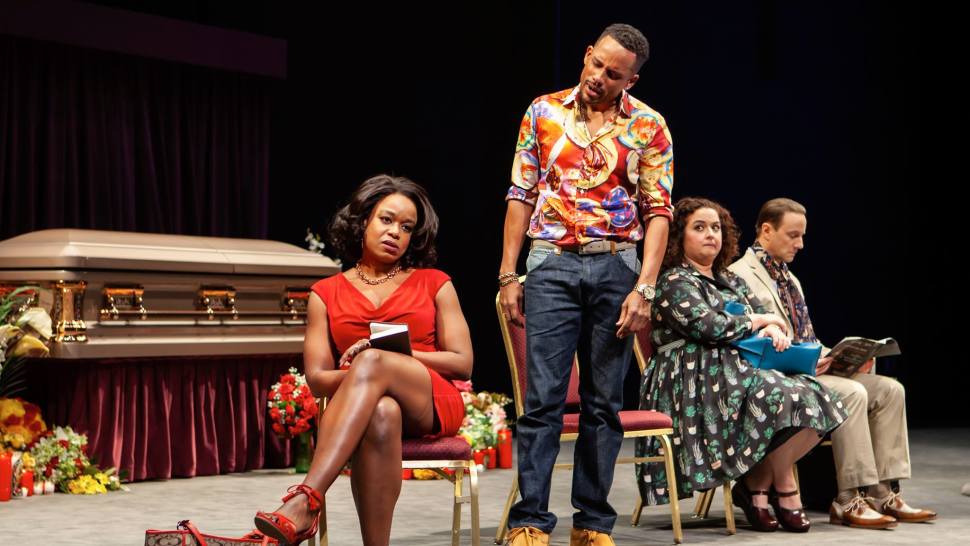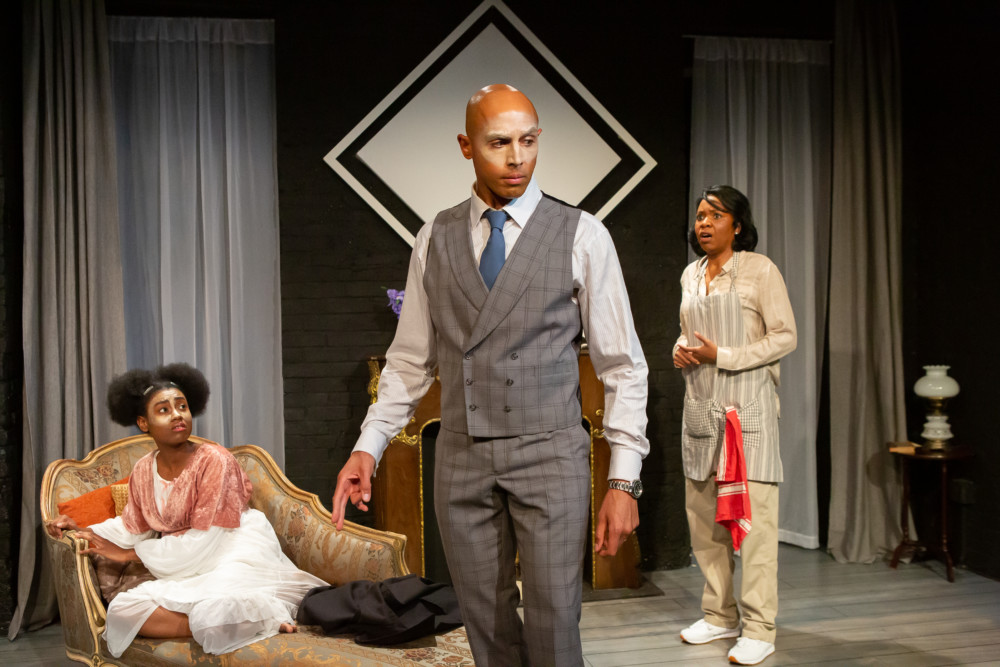By: JK Clarke
The Winter’s Tale is one of a small number of Shakespeare’s difficult-to-categorize plays that has fallen in and out of favor over the centuries. It has the dubious structure of being crushingly tragic in its first half, and then festive and redemptive in the second half. As one of the last plays penned by the Bard, one might venture that he decided to meld the successful elements of his ever popular comedies and tragedies to create a Super Play. In other words, he turned into a Hollywood producer. Whether that decision led to the creation of a great play is entirely debatable. But lately, it seems, the play has come into favor once again and is experiencing a bit of a revival. The most recent production comes to us from The Modern Theater.
The story is simple, yet with plot points that jump forward absurdly fast. Out of seemingly nowhere (in the first scene) King Leontes of Sicily (played with appropriate psychosis by Ethan Cadoff) falsely decides his wife Hermione (Laurie Schroeder) and his best friend, Bohemian King Polixenes (a contrastingly smooth and relaxed Jeff Paul), are having an affair. He plots to kill Polixenes (who escapes and returns to Bohemia), and imprisons his wife. A judgment from the Oracle at Delphi exonerates them, but too late: both his wife and male heir have died of grief and harsh prison conditions. His wife’s newborn baby daughter, Perdita, has been spirited away to Bohemia, where the foundling is raised by a shepherd and his buffoonish son.
Then the play makes a dramatic jump in time, with a Chorus briefly explaining what has transpired in the intervening sixteen years. And here the scene shifts from the austere Sicilian court to the magical, whimsical Bohemian countryside and from a tragedy to a comedy. This is where the production falters. The second half of The Winter’s Tale—being the romantic comedy that it is—relies heavily on word play and long-winded expository speeches, particularly by con man/peddler Autolycus (Robert Meksin). But too much energy is spent on creating atmosphere and too little on message, which ends up getting lost in on-stage chaos. Bohemia is represented as a society of Burners (year-round acolytes of the Burning Man festival), whose attire can only be described as Seussical, hallmarked by gross incongruity and vivid neons of pink and lime green—colors whose appreciation can surely only be appreciated under the influence of psychotropic chemicals. These self-involved, neo-hippies are not representative of the Pastoral society Shakespeare intended for Bohemia; and too much is spent in physical frivolity than on moving the plot along: a bad move for a play that has had a third of its text edited out (poorly) for time.
The play’s denouement, which puts the “magical” into magical realism, is well produced, and could have provided the awe that we are expected to have. But the distractions of the second half, and its garish costumes (in contrast to the beautiful court robes of Bohemia) have taken us too far from the story and the impact is diluted. A shame really, because it is an enthusiastic and energetic cast who’ve put their collective heart into the production.
The Winter’s Tale. Directed by Ryan Lee. Through March 15 at The Main Stage Theater, 312 West 36th Street, 4th Floor at 8th Avenue. www.workshoptheater.org 866 811-4111






















